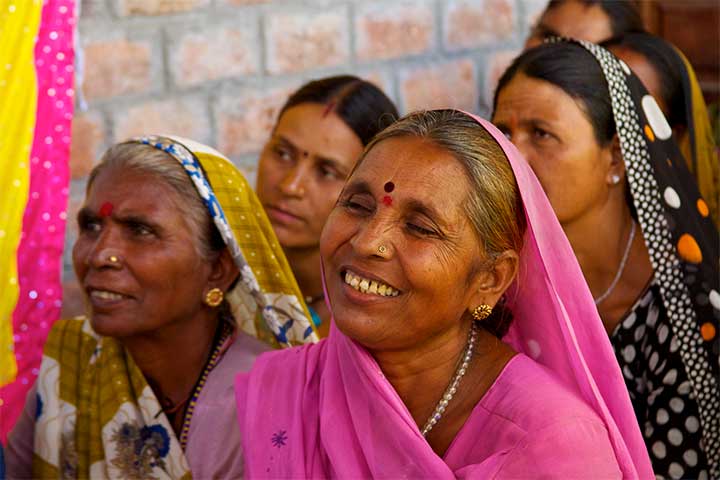The Pink Revolution in India by Cindy Sasha
In Banda, located in India’s northern Uttar Pradesh state, there is a female gang that has been growing by the thousands and putting fear in the minds of corrupt officials and barbaric men. Uniformed in bright pink saris and armed with a lathi (a traditional Indian stick), the Gulabi Gang was founded by Sampat Pal – grassroots, female vigilante group that fights against oppression and injustice and marches the streets and towns confronting corrupt policemen, crooked politicians and abusive husbands.
Sampat Pal was born in the poor rural region of Bundelkhand, also known as the “badlands” of India. Pal was married off at the tender age of 12 and was pregnant with her first child by 15. She had limited education and economic opportunities, easily resigning herself to her fate, like many other Bundelkhand women. However, it was her passion for social justice that drove her to organize an army of women into the Gulabi Gang in 2006.
Gulabi, in Hindi means pink. The colour was chose by Pal as it was free of any religious or political connections in India. The Gang target issues of domestic violence, rape and forced marriage and, although equipped with large bamboo sticks, they are rarely used. They focus their actions on pressuring police to register and investigate cases, organizing protests, raising awareness and providing support to women at risk.
The Gulabi Gang has been known to beat men who have abandoned or abused their wives and they have unearthed corruption resulting in unequal distribution of resources to the poor. These women are not afraid to storm into a police station – attacking a policeman after they took in an untouchable man and refused to register his case.
“Nobody comes to our help in these parts. The officials and the police are corrupt and anti-poor. So sometimes we have to take the law in our hands. At other times, we prefer to shame the wrongdoers,” says Sampat Pal, whilst teaching a “gang” member how to use a lathi for self-defence.
The Gulabi Gang gives a strong message to the world. If one voice can inspire 20,000 women on the streets of India to fight for their basic human rights and to be fearless of authority why, in the western world, are we complacent about our own human and environmental rights – even misplacing our priorities and duties as human beings to the planet and to one another. Sampat Pal and the Gulabi Gang should be an inspiration to us all; they show that if our system is failing us, we too can unite as a local or national community, demanding justice and our right to be heard by our government officials and local authorities.




No comments yet